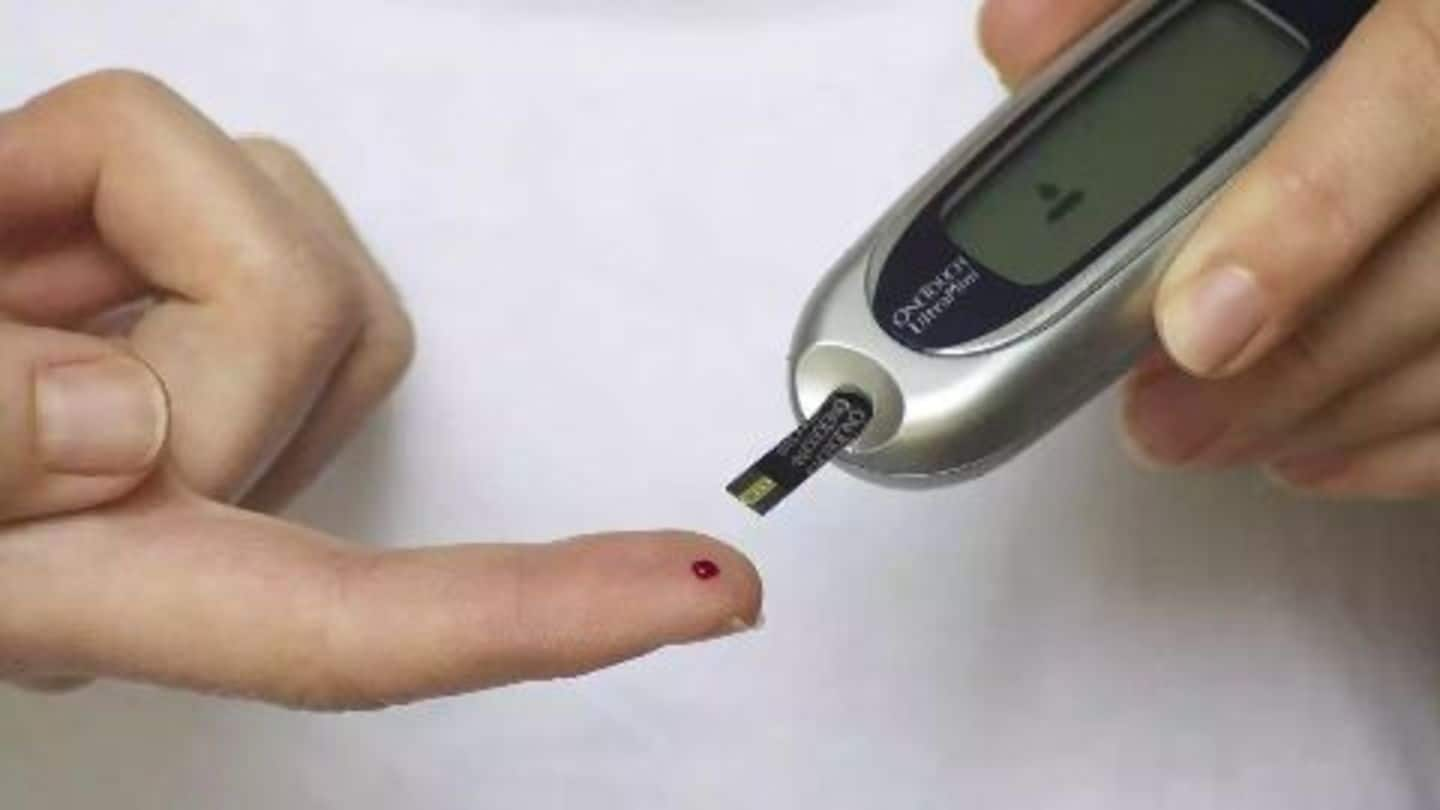
Indians spend Rs.1.5 lakh crore on diabetes care
What's the story
According to a study published in the reputed British medical journal, The Lancet, Indians spend Rs.1,50,000 crore annually on diabetes treatment. The amount, more than 4 times the health budget of the government, is rising at a rate of 20-30% per annum mainly driven by insulin costs. Against a global average of 45%, incidence of diabetes has increased by 123% in India during 1990-2013.
About
What is diabetes?
Diabetes is a metabolic disease characterised by elevated levels of blood sugar leading to severe damage to the heart, blood vessels, kidney, eyes, and nerves. Type-2 diabetes which is mainly caused by obesity is its most common form and occurs due to the body's ineffective use of insulin. Type-1 diabetes occurs due to deficient or non-production of insulin by the pancreas.
Personal
What is insulin?
Insulin is a hormone which is produced by the pancreas and is used by the body to absorb and utilize glucose and sugar in the bloodstream.
12 Feb 2015
Diabetes in India: High incidence, low awareness
With 65 million diabetic patients, India has one of the highest diabetic population in the world, which is expected to cross 100 million by 2030. Despite being the most talked about disease, awareness level about it is quite low, as 90% diabetic patients believe their blood glucose level is in control despite being not. The lack of awareness leads to late diagnosis and complications.
Do you know?
Link between mental disorders and diabetes
Researchers at the University of Massachusetts Medical School have found that a gene, 'DISC1', which plays a role in mental disorders such as schizophrenia, bipolar disorders, depressions, etc. influences the functioning of the pancreas and insulin production.
4 Feb 2016
CSIR launches 1st ayurvedic anti diabetic drug
The Council for Scientific and Industrial Research (CSIR) launched the first ayurvedic anti-diabetic drug, BGR-34 (Blood Glucose Regulator). BGR-34, effective against Type-2 diabetes mellitus, had been scientifically validated for efficacy and safety. Priced at Rs.5 per tablet, it would be much cheaper than the other drugs available in the market. CSIR also said that unlike modern diabetic drugs, BGR-34 would not have any side-effects.
9 Feb 2016
New insulin adding to the cost
The economic burden of diabetes on individuals is very high due to low penetration of health insurance schemes and limited governmental support. The indiscriminate use and prescription of insulin and the use of branded and patented varieties of the hormone have made treatment very expensive. New technologies in synthesizing and administering of insulin have also significantly driven up costs of using such treatment.